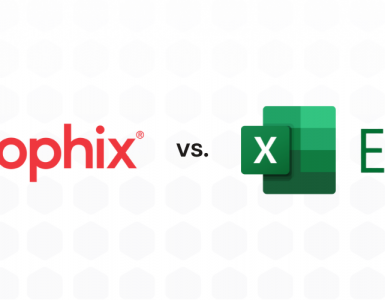We interact with many different companies in our day-to-day lives. You might take an Uber to work, buy a coffee at Starbucks, grab lunch from McDonald’s, and order a gift for your friend on Amazon all in a single day. But have you ever stopped to wonder – what is the purpose of a corporation?
The answer might seem obvious – the purpose of a corporation is to sell products or services to consumers in exchange for financial compensation. After all, how would we decorate our homes, clothe ourselves, or enjoy a delicious meal without corporate brands?
Before 2019, if you had asked a corporation to define their purpose, they likely would have said it is to keep their shareholders happy and return profits. After all, without shareholders, companies are unlikely to be successful.
In this blog, we’ll examine how the purpose of corporations has changed and how this affects the consumer experience.
What’s Changed
The Business Roundtable is a non-profit organization based in Washington, DC. Its members are the chief executive officers of major U.S. companies like Apple, Amazon, General Motors, Johnson & Johnson, Mastercard, and more.
Since 1997, The Business Roundtable has maintained that the purpose of a corporation is to advance the interests of its shareholders, as we discussed above.
Recently, The Business Roundtable decided to modernize its principles on the role of a corporation. They summarized their decision in a statement released in August:
America’s economic model, which is based on freedom, liberty and other enduring principles of our democracy, has raised standards of living for generations, while promoting competition, consumer choice and innovation. America’s businesses have been a critical engine to its success.
Yet we know that many Americans are struggling. Too often hard work is not rewarded, and not enough is being done for workers to adjust to the rapid pace of change in the economy. If companies fail to recognize that the success of our system is dependent on inclusive long-term growth, many will raise legitimate questions about the role of large employers in our society (Source).
The New Purpose of a Corporation
In the modernized version of The Business Roundtable’s The Purpose of a Corporation, they put forward the following values:
- Delivering value to our customers. We will further the tradition of American companies leading the way in meeting or exceeding customer expectations.
- Investing in our employees. This starts with compensating them fairly and providing important benefits. It also includes supporting them through training and education that help develop new skills for a rapidly changing world. We foster diversity and inclusion, dignity and respect.
- Dealing fairly and ethically with our suppliers. We are dedicated to serving as good partners to the other companies, large and small, that help us meet our missions.
- Supporting the communities in which we work. We respect the people in our communities and protect the environment by embracing sustainable practices across our businesses.
- Generating long-term value for shareholders, who provide the capital that allows companies to invest, grow and innovate. We are committed to transparency and effective engagement with shareholders.
The Impact on Business
For many consumers, the question remains whether large corporations will change the way they do business as a result of this new set of governing principles.
For many organizations, these changes will require their directors to revisit their statement of purpose. The Sustainability Accounting Standards Board created a Materiality Map, which can help companies identify relevant environmental, social and governance (ESG) issues to address in their revised statements.
According to Tod Northman and Savannah Fox at Tucker & Ellis LLP, “the statement [of purpose] should inform shareholders and society of how and when the company intends to fulfill its purpose, as well as engage shareholders, investors, and society by acting as a tool to measure board effectiveness” (Source).
A company’s purpose should also tie profit to its shareholder-based approach. As an example, The Bank of America tied millennial investment preferences (“impact investing”) to profit by demonstrating that millennials could drive $15-20 trillion in ESG investments over the next three decades (Source). This meets The Bank of America’s legal duty to generate profit, as well as the principles set out by The Business Roundtable.
It’s important to recognize that the penultimate objective of corporations has not changed – their goal is to generate a profit. However, generating profits with an ESG focus, as outlined by The Business Roundtable’s values, has the potential to positively impact the economy, the consumer experience, and the environment.
The Prophix Way
If you’re reading this blog, you’re probably wondering how Prophix incorporates these values into our business.
First and foremost, we pride ourselves on delivering value to our customers through every step of their journey. When you invest in Prophix you are not just getting a software platform, you also get the entire Prophix team supporting you along the way.
Since 2013, we’ve also dedicated ourselves to building a better world. Prophix’s corporate social responsibility philosophy is about empowering people and the communities they live in, creating positive and lasting global change. Our approach to social responsibility is a blend of our leaders’ values and our evolving corporate culture – encouraging our employees to seek fulfillment in all aspects of their lives. We are also working on making our offices more sustainable, with a specific focus on waste management.
Our employees also have access to subsidized continuing education programs to help strengthen their skills, as well as in-house training and advancement opportunities.
We’re just getting started, and we can’t wait to work with you to create a better world.






